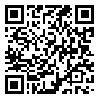Volume 13, Issue 6 (3-2015)
TB 2015, 13(6): 57-71 |
Back to browse issues page
Download citation:
BibTeX | RIS | EndNote | Medlars | ProCite | Reference Manager | RefWorks
Send citation to:



BibTeX | RIS | EndNote | Medlars | ProCite | Reference Manager | RefWorks
Send citation to:
Saffari, Sanaeinasab, Rashidi-jahan. Personal hygiene, Military, Behavior, Knowledge, Attitude . TB 2015; 13 (6) :57-71
URL: http://tbj.ssu.ac.ir/article-1-1374-en.html
URL: http://tbj.ssu.ac.ir/article-1-1374-en.html
Baqiyatallah University of Medical Sciences, Tehran
Abstract: (8374 Views)
Introduction: Personal hygiene is one of the most important preventive tools in the field of public health, and military forces may be exposed to threats due to non-adherence to principles of personal hygiene. The aim of this study was assessing the situation of personal hygiene among military forces and identifying its determinants and related potential barriers.
Methods: This is a cross-sectional study performed among 502 military forces from 10 military centers throughout Iran. These centers were selected randomly. The instrument for data collection was a self-report questionnaire including 5 sections: demographic information knowledge, attitude, and practice regarding personal hygiene and the other part on potential barriers. The variables such as demographic information, knowledge and attitude served as independent variables and practice of personal hygiene was considered as dependent variable. Collected data were analyzed through SPSS software using student t-test, Pearson correlation and linear regression.
Results: The mean age of the participants was 33.04 (SD, 6.83), more than 84% of them were married. The most important sources to get information were TV and radio (72.3%). The knowledge (71.5%), attitude (63.7%), and practice (61.8%) among most of the participants were at optimal levels. The variables including job, knowledge, and attitude were significantly related to personal hygiene behavior (P<0.05). The determinants of personal hygiene were: military grade, duration of the work, job, knowledge, and attitude.
Conclusion: Regarding the levels of knowledge, attitude and practice on personal hygiene, it is recommended to consider the suitable planning and intervention for improving these variables among military forces. More studies are suggested to be conducted for different military forces and other parts of the community to further identify influential factors and determine personal hygienic behavior.
Type of Study: Research |
Subject:
Special
Received: 2013/12/7 | Accepted: 2014/05/26 | Published: 2015/03/15
Received: 2013/12/7 | Accepted: 2014/05/26 | Published: 2015/03/15
| Rights and permissions | |
 |
This work is licensed under a Creative Commons Attribution-NonCommercial 4.0 International License. |





